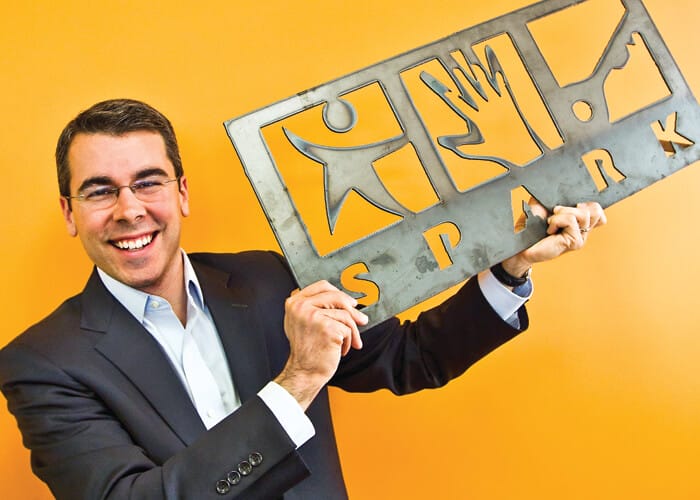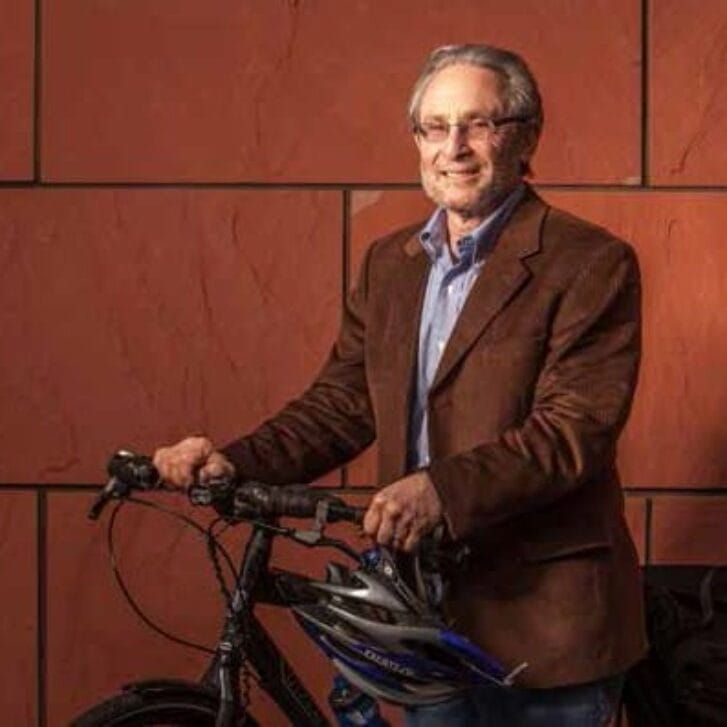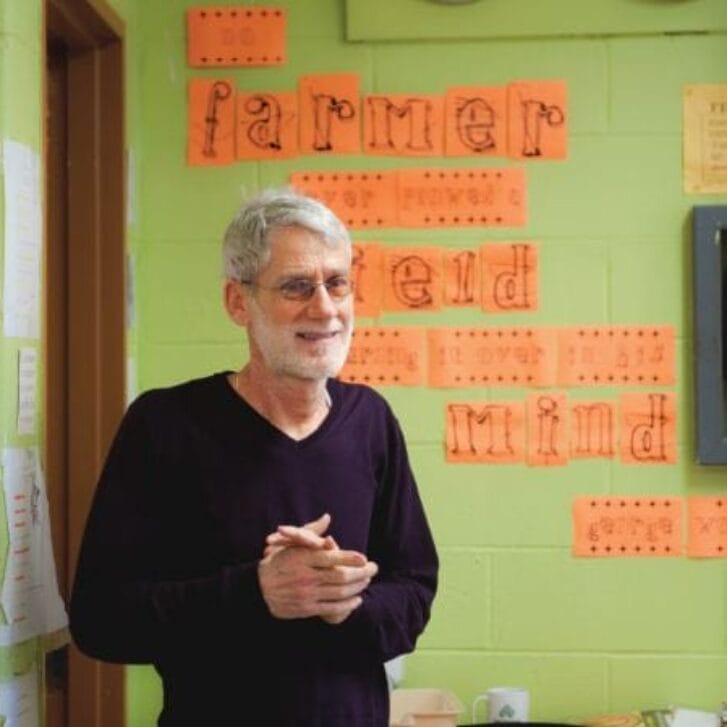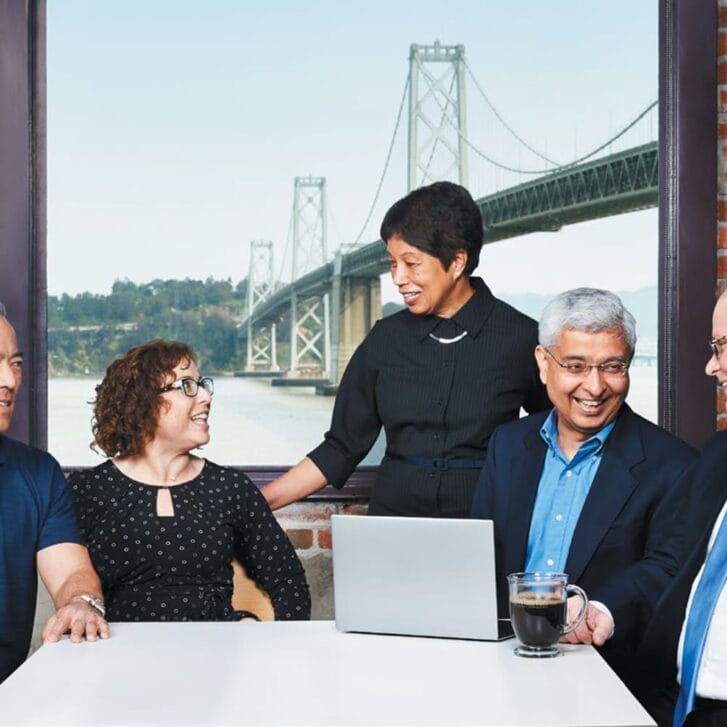In 2007, newly appointed Dean Thomas S. Robertson invoked Joseph Wharton’s pioneering vision when he declared that the School should be not only a haven for the best business minds in the world but also a “force for good.”
“At Wharton, we believe the role of business is to advance society as a whole, creating new wealth and economic opportunity for all people, in developing regions as well as the developed economies,” he told USA Today.
Gianna Driver, W’04, is using her Wharton education to do just that. Driver’s own entrepreneurial venture, GIANNA, is a mission-driven for-profit that currently operates in Laos, Thailand, the Philippines and India. It teaches artisans basic business skills and provides forums in which their work can be sold. Driver credits Wharton with giving her the skills needed to create the business plan for GIANNA, but, more pointedly, she credits the School with giving her the confidence and wherewithal to consider such a venture.
“I said, ‘If I could do anything in the world, what would I do.’ I think it was because of my Wharton education that I felt empowered to ask myself [that question]. I know going into it, before Wharton, there was no way I would have had the courage and the confidence to ask such a bold question,” she says.
Like Driver, Kelly McCrystal, WG’06, took the time after Wharton to re-evaluate her career path and chose to transition from the for-profit world into a nonprofit.
“It’s not as difficult a switch as people think it could be,” she says.
As a country director for the Clinton Health Access Initiative, which works to expand access to health care in the developing world, McCrystal is essentially the CEO of all its operations in Tanzania.
“There’s not a day that goes by, in fact there’s hardly a minute that goes by, where my education that I got at Wharton isn’t coming to bear in what I’m doing,” she says.
Alli Myatt, WG’06, agrees that her Wharton education guides her choices each day, even though she works in an unusual industry for a Wharton graduate. A recipient of the John M. Bendheim Loan Forgiveness Fund for Public Service, which helps Wharton alumni who pursue social impact careers pay back their student loans, Myatt currently works with the New Teachers’ Project, a nonprofit organization that seeks to increase teacher effectiveness within the United States.
“One of the greatest things that you come out of Wharton with is a real strategic way of problem-solving and applying framework. I went to Wharton because I wanted to build my strategic skillset and build my analytical skillset. I think that in the role that I’m in now, that’s been really important,” Myatt says. “For me, it was really about being able to think differently.”
For Chris Balme, C’03, W’03, Wharton opened his eyes to a different way of thinking about entrepreneurship. He credits Wharton with introducing him to the idea that an entrepreneur can solve any problem—be that “a market problem, product problem or a social problem.”
“I felt I would be most motivated, most excited to solve, really help to solve, a social problem,” he says.
To accomplish this, Balme co-founded Spark, a nonprofit that seeks to “provide life-changing apprenticeships to youth in underserved communities across the United States.” Spark has student apprentices in San Francisco, Los Angeles and Chicago, and is building a partnership with Wharton to begin a program in Philadelphia. In 2011, Spark oversaw 670 apprentices, a remarkable increase from the 11 students it began with 2004.
Like many other alumni, Balme credits Wharton and the University of Pennsylvania more broadly. He argues that more Wharton graduates are needed in the nonprofit and social impact arena.
“There’s often a lack of the kind of quantitative leadership skills that Wharton focuses on,” he explains. “Wharton skills are so needed.”
The Triple-Bottom Line
To utilize the Wharton skillset for social good, alumni need not be social entrepreneurs like Driver or Balme or staff members at a nonprofit like McCrystal or Myatt. Many alumni are making an impact by combining more traditional post-Wharton careers and the social sector.
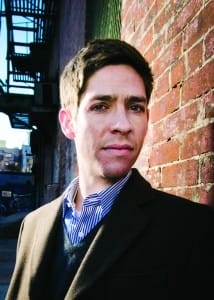
Jeff Henretig, WG’09
Jeff Henretig, WG’09, is one such alumnus. Henretig works as a business development associate at Next Street, a merchant bank that provides guidance, support and capital to urban businesses that are too large to receive government help but too small to afford many essential services. Next Street services this “missing middle” through four practice areas: advising, talent, agency and capital. As a previous small business owner in an urban environment, Henretig understands the difficulties that many of his clients face, as they seek to bring goods and services to an underserviced community. Henretig argues that Next Street’s clients have traditionally been “denied the opportunity to grow” due to a lack of access to capital.
“Depending on what ZIP code and what neighborhood it’s in, a lot of these companies had been historically written off by banks,” Henretig says. Next Street provides the capital and support for these organizations.
Dan Skaff, WG’87, also believes that access to capital can help address social ills, including poverty. Skaff, president of Oakland-based One Pacific Coast Bank, defines the mission of One Pacific Coast Bank broadly: “to help foster prosperous communities through what we call beneficial banking practices.” Beneficial banking transactions are “fair, transparent, economically just and are not extractive but are supportive of the communities we serve.”
Skaff credits Wharton with more than the hard business skills he uses each day.
“You learn value sets that are important to you. You learn how you’re going to approach business. And you learn: Is winning everything, and, if so, how do you define winning?” he says.
While a for-profit bank, One Pacific Coast is unique in that it has a triple-bottom line—financial, social and environmental. The bank is organized so over time profits support it and ensure that the organization is sustainable and adequately capitalized. Beyond that, the One Pacific Coast Foundation receives dividends and excess profits to reinvest in the community in support of the bank’s mission.
Skaff has also served as a board member for nonprofit organizations throughout his career, including the Sierra Club Investment Advisory Council, the Bay Area Children’s Discovery Museum and the Marine Community Foundation. In fact, Skaff’s first work for One Pacific Coast was as a board member, which led to Skaff’s current position.
Educating the Next Generation
Like Skaff, many Wharton alumni serve their communities through board service. In recognition of this, the School has created the Nonprofit Board Leadership Program. This program offers second-year MBA students the opportunity to serve on the boards of local Philadelphia nonprofits as “Visiting Board Members.” Students provide the nonprofit with their business expertise while gaining precious experiential education.
According to Rebekah Horowitz, WG’12, who sits on the board of the Center for Advocacy for the Rights and Interest of the Elderly (CARIE) in Center City Philadelphia, this program is ideal for students who intend to go into the corporate world but still want to be involved in philanthropic service because it gives students a foray into an area of philanthropy that they do not usually get this early in their career.
This program is one of many socially focused programs on campus. The Wharton Program for Social Impact, overseen by Managing Director Sherryl Kuhlman, WG’01, coordinates social efforts across Wharton’s campus, including events and student-run organizations. This office, formed in the fall of 2010, has been well-received by Wharton alumni and students.
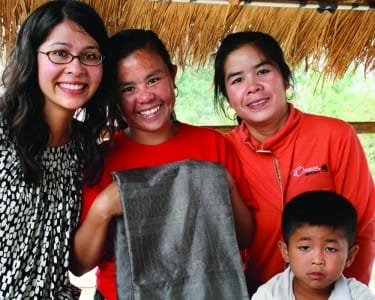
Gianna Driver, W’04
“The Program for Social Impact is about leveraging Wharton’s distinctive competencies to provide thought leadership, experiential learning opportunities and career development in areas such as stakeholder management, impact investing, social entrepreneurship and improving the effectiveness of social enterprises,” comments Len Lodish, Vice Dean for Social Impact, Samuel R. Harrell Professor in the Marketing Department, and leader and co-founder of the Global Consulting Practice.
“The experiences of our alumni are a reflection of the complexity and innovation evident in the field, and the Program for Social Impact plays a vital role in harnessing Wharton resources to help address some of the pressing social problems facing society,” he says.
During her tenure at Wharton, Vivian Chen, W’11, noticed a “big change” in the student body’s level of awareness of the social sector. As former president of the Penn Microfinance Club, Chen credits the social impact concentration for undergraduates and social impact courses that mix undergraduate and graduate students, in addition to the many other resources available on campus to student interested in the social arena.
These resources are growing.
For the past year, Marijn Spillebeen, WG’12, and Feyi Olopade, WG’12, have been hard at work enhancing and expanding the Wharton Social Venture Fund. Spillebeen and Olopade, along with other MBA students, are creating a course that focuses on impact investing, whereby investors focus on corporations and organizations that have a positive social impact. The course will teach students about impact investing and good financing practices, with a fund made up of the students’ own money as a learning tool.
The Wharton Social Venture Fund “is combining the social impact experience with [Wharton’s] traditional background … in finance,” Olopade says.
This integration has certainly made the Wharton Social Venture Fund a popular idea. Spillebeen estimates that they have had more than 100 people apply this year, about 12 percent to 13 percent of the incoming class.
Another student-led organization, the Wharton Social Impact Club, overseen by co-presidents
Rebecca Bailey, WG’12, and Katie Picarsic, WG’12, offers its members resources and connections to alumni, as well as substantive programming. The club seeks to educate all MBA students about the importance of the social sector—not just those students who wish to pursue a career in the nonprofit world.
“[Social impact] can touch every different student in a multitude of ways,” Bailey says.
No matter what occupation a Wharton graduate may move into, social impact will play a role.
The Spread of Social Impact
Kuhlman agrees: Social impact permeates all organizations and corporations as their customers, employees and other stakeholders expect some level of corporate social responsibility. She envisions a future where corporate social responsibility will not be optional.
“It’s going to be required,” she says.
That future might already be here. According to Rita McGlone, senior director of Wharton Executive Education’s partnerships for social impact, corporations realize they must pay attention not just to shareholders; they must manage multiple stakeholders too.
“If they don’t, they’re not going to be successful businesses,” says McGlone, who works with corporate and nonprofit partners to organize executive education programs.
And corporations don’t need to work alone. McGlone’s ideal scenario is when “the public sector, the private sector and the educational sector [come] together to work on a common goal, each bringing their own resources to the table and leveraging what they have to offer.”
Driver, the social entrepreneur, believes such an ideal scenario is necessary for success.
“It’s the interplay and the dance between for-profit, nonprofit and NGOs that has to happen seamlessly for us to overcome poverty and social injustice,” Driver says.
Certainly, a Wharton education helps to facilitate this interplay and address these broad challenges. Many students and alumni seek to change the world using their business skillset.
“I wanted to align my goals and my morals with the thing that I’m doing on a day-to-day basis,” Bailey says. “What is nice is that now there is a field that is developing that can allow people to do that.”




















